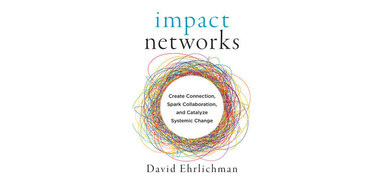
An Introduction to Impact-Oriented Networks
Addressing Grand Challenges Collectively
Over the past decades, network thinking has become widespread with several ground-breaking theoretical and empirical insights inspiring action across a range of domains. Yet, network thinking has only recently entered the philanthropic and social impact field.
Insights into working mechanisms and impact are promising but predominately anecdotal with existing research and practical applications remaining largely superficial and disconnected. Still, the concept of impact-oriented networks promises to be a versatile and impactful tool for philanthropy and social impact.
The new background paper “Addressing Grand Challenges Collectively: An Introduction to Impact-Oriented Networks” (see below), compiled in cooperation with the Social Entrepreneurship Center of the Vienna University of Economics and Business, is based on an extensive literature review of 80+ sources, ranging from peer-reviewed journal articles to bestselling books and from practitioner reports to theoretical treatises, and our own reflections.
The paper provides several key insights, metrics and models such as the following.
Impact-oriented networks:
- usually form around a shared element, of which we distinguish three: a specific, common impact goal or cause, a shared experience of its actors, or a shared space.
- can differ greatly in terms of their structure and governance and can take on one of four basic forms: civic membership organizations, multihub networks, tightly knit networks, and networks of networks. Their governance is shared, outsourced, or highly centralized.
- generate benefits on different, but interconnected, levels.
- can offer benefits by: increasing a access to resources; providing external legitimacy; facilitating social and emotional support; and offering opportunities for individuals to scale their engagement and impact.
- offer a high fit with key recommended activities for institutions that wish to move beyond traditional grant-giving.
Furthermore, the paper identifies five principles of high-functioning networks:
- a focus on long-term impact
- trust-building
- humility
- alignment of network structure with network purpose
- a dynamic perspective on network composition
Read here the unabridged background paper including much more in-depth information, examples and insights:








